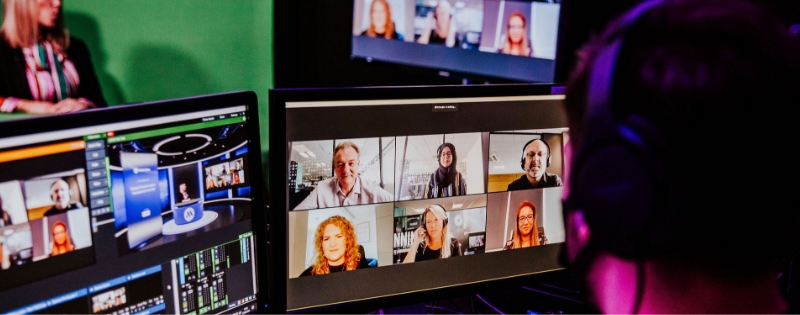As healthcare executives, you know that success is dependent on recognizing the latest trends and strategies in the industry. Using innovative solutions can help your organization become more efficient, save money, and increase patient care. But many times, these innovations seem like a quick fix — band-aids for a bigger issue. In this blog we’ll explore not just how to “patch up” your current system, but instead how recent technology advancements can help healthcare executives reach their goals with long lasting solutions. Get ready to learn about some of the most exciting developments in healthcare that we learnt about at our recent GDS Healthcare Summit, that have been designed specifically with success in mind!
Artificial Intelligence
Artificial Intelligence (AI) is revolutionizing healthcare and providing a much-needed boost to the healthcare system as a whole. By using advanced algorithms, AI can assess vast amounts of data quickly and accurately, enabling healthcare professionals to make more informed decisions faster. The technology also offers healthcare providers with unprecedented insight into patient conditions, helping them to diagnose diseases earlier. It’s can also provide better access to personal healthcare data, allowing healthcare professionals to provide more personalized care from patient to patient.
AI can also help healthcare systems to streamline customer care, allowing you to provide more personalized services. AI bots are often used for conversational healthcare applications such as virtual healthcare visits and patient education, and they can also answer the questions patients have in an efficient and cost-effective manner, either from home or their hospital bed!
All in all, AI is revolutionizing healthcare and providing healthcare providers with the tools they need for more efficient and accurate healthcare decisions. This technology provides improved customer service, better access to personal healthcare data, and earlier diagnosis of diseases. AI is truly transforming healthcare systems around the world.

Telehealth
Telehealth has revolutionized healthcare delivery, allowing healthcare providers and their patients to interact remotely. This innovative approach to healthcare delivery offers the convenience of virtual consultations, reducing the need for physical visits and creating a more cost-efficient healthcare system.
Telehealth also allows healthcare professionals to access a wider range of healthcare services, such as mental health counselling or physical therapy, regardless of geographic location. By providing healthcare access to more people in remote areas, telehealth has increased healthcare accessibility and quality of services.
This technology is making healthcare delivery easier, more efficient and more accessible than ever before. It’s enabled healthcare providers to increase patient satisfaction and healthcare outcomes, while reducing healthcare costs and expanding healthcare services. With the advantages of telehealth becoming increasingly clear, healthcare providers have embraced this technology as an invaluable tool for enhancing patient care.
In addition, healthcare providers can use the technology to maximize their efficiency by performing multiple consultations simultaneously and quickly responding to patient inquiries. It’s an essential tool for healthcare providers looking to stay ahead of the curve in delivery. With its versatile capabilities and the potential to improve healthcare outcomes, telehealth is set to become increasingly more important in healthcare systems around the world.

Blockchain in Healthcare
Blockchain is a distributed ledger technology that can store data securely and immutably without a third-party intermediary, and it’s being explored as a tool to revolutionize the healthcare system, and the security of collaborative care systems. By streamlining processes via blockchain, healthcare providers can easily share data with others and better coordinate care for patients. And by securely storing patient records, medical professionals can access a single source of truth when providing collaborative care.
Furthermore, blockchain technology helps to reduce the risk of fraud and errors in healthcare systems. Because it’s decentralized, blockchain-based systems are resistant to cyber-attacks that can access sensitive patient data. And as if that wasn’t enough, healthcare professionals can keep an immutable record of all collaborative care activities and track the progress of each patient’s treatment by monitoring changes in the ledger. This ensures that collaborative care is managed efficiently and accurately across multiple systems and providers. Blockchain really does present a powerful opportunity to revolutionize and secure the healthcare system.

Artificial intelligence, telehealth, and blockchain technology are revolutionizing the healthcare industry in remarkable ways. Combining these technologies with other tools like cloud computing can give healthcare organizations a comprehensive suite of tools to streamline processes and increase efficiency. Despite having its own unique challenges, advances in these cutting-edge technologies have led healthcare professionals to explore the possibilities for further initiatives that have the potential to improve the health of populations everywhere – from the most rural and remote communities to large metropolitan cities. From patient data tracking to vital analytics, and even doctor-patient interfaces, these new technological advances have shown that more effective healthcare systems are possible – and can give us a glimpse into a healthier future. If you’re interested in learning more about these emerging revolutionary healthcare technologies, join us at our upcoming GDS Healthcare Summit.














